English:
The Junkers Ju 87 or Stuka (from Sturzkampfflugzeug, "dive bomber") was a German dive bomber and ground-attack aircraft. Designed by Hermann Pohlmann, it first flew in 1935. The Ju 87 made its combat debut in 1937 with the Luftwaffe's Condor Legion during the Spanish Civil War and served the Axis forces in World War II.
The aircraft is easily recognisable by its inverted gull wings and fixed spatted undercarriage. Upon the leading edges of its faired main gear legs were mounted the Jericho-Trompete (Jericho trumpet) wailing sirens, becoming the propaganda symbol of German air power and the so-called Blitzkrieg victories of 1939–1942. The Stuka's design included several innovations, including automatic pull-up dive brakes under both wings to ensure that the aircraft recovered from its attack dive even if the pilot blacked out from the high g-forces.
The Ju 87 operated with considerable success in close air support and anti-shipping at the outbreak of World War II. It led air assaults in the invasion of Poland in September 1939. Stukas were critical to the rapid conquest of Norway, the Netherlands, Belgium and France in 1940. Though sturdy, accurate, and very effective against ground targets, the Stuka was, like many other dive bombers of the period, vulnerable to fighter aircraft. During the Battle of Britain, its lack of manoeuvrability, speed and defensive armament meant that it required a heavy fighter escort to operate effectively.
After the Battle of Britain, the Stuka was used in the Balkans Campaign, the African and Mediterranean theatres and the early stages of the Eastern Front, where it was used for general ground support, as an effective specialised anti-tank aircraft and in an antishipping role. Once the Luftwaffe lost air superiority, the Stuka became an easy target for enemy fighter aircraft. It was produced until 1944 for lack of a better replacement. By 1945 ground-attack versions of the Focke-Wulf Fw 190 had largely replaced the Ju 87, but it remained in service until the end of the war.
An estimated 6,500 Ju 87s of all versions were built between 1936 and August 1944.
Oberst Hans-Ulrich Rudel was the most successful Stuka pilot and the most highly decorated German serviceman of the Second World War.
note 1: to get on the plane you must first climb (in one jump) to the left wing next to the cabin
Note 2: I decided to replace it with the Cropduster for two reasons,
1- in case of doing a mission in DYOM or a scene where it being attacked by a plane (Rustler or another)
2- in case of being attacked in a scene (video), make a "smoke" effect (as in the last 2 images)
---------------------------------------
Español:
El Junkers Ju 87 o Stuka (de Sturzkampfflugzeug, "bombardero en picado") era un bombardero en picado y un avión de ataque a tierra alemán. Diseñado por Hermann Pohlmann, voló por primera vez en 1935. El Ju 87 hizo su debut en combate en 1937 con la Legión Cóndor de la Luftwaffe durante la Guerra Civil Española y sirvió a las fuerzas del Eje en la Segunda Guerra Mundial.
El avión es fácilmente reconocible por sus alas de gaviota invertidas y su tren de aterrizaje fijo. Sobre los bordes de ataque de sus patas de engranaje principal carenadas se montaron las sirenas aulladores de Jericho-Trompete (trompeta de Jericó), convirtiéndose en el símbolo de propaganda del poder aéreo alemán y las llamadas victorias Blitzkrieg de 1939-1942. El diseño del Stuka incluyó varias innovaciones, incluidos frenos de inmersión automáticos debajo de ambas alas para garantizar que la aeronave se recuperara de su inmersión de ataque incluso si el piloto se desmayaba debido a las altas fuerzas G.
El Ju 87 operó con considerable éxito en apoyo aéreo cercano y anti-envío al estallar la Segunda Guerra Mundial. Lideró asaltos aéreos en la invasión de Polonia en septiembre de 1939. Los Stukas fueron fundamentales para la rápida conquista de Noruega, los Países Bajos, Bélgica y Francia en 1940. Aunque robusto, preciso y muy eficaz contra objetivos terrestres, el Stuka fue, como muchos otros bombarderos en picado de la época, vulnerables a los aviones de combate. Durante la Batalla de Gran Bretaña, su falta de maniobrabilidad, velocidad y armamento defensivo significó que requería una escolta de caza pesada para operar de manera efectiva.
Después de la Batalla de Gran Bretaña, el Stuka se utilizó en la Campaña de los Balcanes, los teatros africanos y mediterráneos y las primeras etapas del Frente Oriental, donde se utilizó para apoyo terrestre general, como un eficaz avión antitanque especializado y en un antibuque. Una vez que la Luftwaffe perdió la superioridad aérea, el Stuka se convirtió en un objetivo fácil para los aviones de combate enemigos. Se produjo hasta 1944 a falta de un mejor reemplazo. En 1945, las versiones de ataque terrestre del Focke-Wulf Fw 190 habían reemplazado en gran medida al Ju 87, pero permaneció en servicio hasta el final de la guerra.
Se estima que se fabricaron 6.500 Ju 87 de todas las versiones entre 1936 y agosto de 1944.
El Oberst Hans-Ulrich Rudel fue el piloto de Stuka más exitoso y el militar alemán más condecorado de la Segunda Guerra Mundial.
nota 1: para subir al avion hay que subir primero (de un salto) al ala izquierda al lado de la cabina
nota 2: decidi reemplazarlo por el Cropduster por dos razones,
1- en caso de hacer una mision en DYOM o una escena donde se lo ataque con un avion (Rustler u otro)
2- en caso de ser atacado en una escena (video), hacer efecto de "humo" (como en las ultimas 2 imagenes)
![2024 BMW X5 M40i [Addon]](/downloads/picr/2025-04/thbs_1744742873_54433954339_75e5eef9d4_o.jpg)


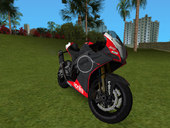
















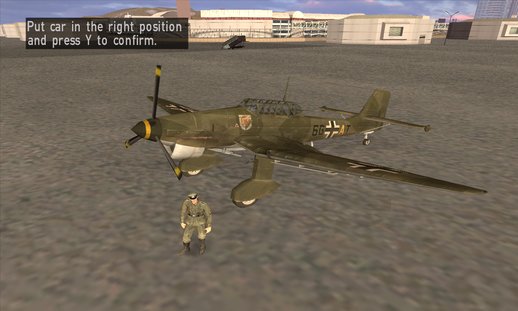
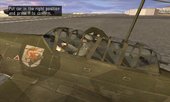
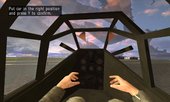
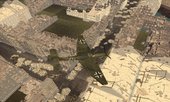
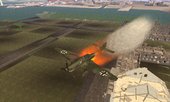
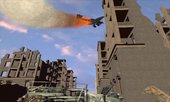

